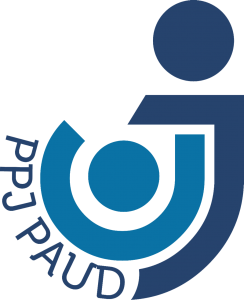Social development of children after habituation healthy protocols during the pandemic covid 19
DOI:
https://doi.org/10.26555/jecce.v5i2.6649Keywords:
health protocol , pandemic, social developmentAbstract
The presence of the corona virus forced the Aisyiyah 14 Ampang Padang Kindergarten students to become accustomed to health precautions during the pandemic, which served as the inspiration for this study. This study's goal was to explain how the adoption of health regulations during the pandemic affected the social development of kids in TK Aisyiyah 14 Ampang Padang who were between the ages of 5 and 6. This study combines quantitative data analysis methods with descriptive research. The 70 kids who made up the study's population were all members of group B at TK Aisyiyah 14 Ampang Padang. Observation logs, field notes, photographic and video recordings, and organized interviews are examples of research tools. The study's findings demonstrate how well-stimulated social behavior, social competence, and social responsibility are encouraged by the adoption of health protocols during the pandemic, ensuring that kids are aware of and obedient when wearing masks, washing their hands, and keeping their distance when interacting with other people.
References
Afif, N., & Nur Qowwim, A. (2021). Optimalisasi Pembelajaran Anak Usia Dini di Masa Pandemi Covid-19. El-Athfal : Jurnal Kajian Ilmu Pendidikan Anak, 1(02), 57-63. https://doi.org/10.56872/elathfal.v1i02.274
Agusniatih. (2019). Keterampilan sosial anak usia dini. EDU Publisher.
Arikunto, S. (2005). Manajemen penelitian. PT Rineka Cipta.
Awailuddin. (2020). Tinjauan Pandemi Covid-19 dalam Psikologi Perkembangan. Syiah Kuala University Press.
Aziz, A., Saddhono, K., & Setyawan, B. W. (2022). A parental guidance patterns in the online learning process during the COVID-19 pandemic: Case study in Indonesian school. Heliyon, 8(12), e12158. https://doi.org/10.1016/j.heliyon.2022.e12158
Claudia, C. M., & Alexandra, O. (2022). Optimizing inclusive education in the context of COVID-19 pandemic. European Proceedings of Educational Sciences, 2, 374-382. https://doi.or/10.15405/epes.22032.37
Dewi, A. R. (2020). Perilaku Sosial Emosional Anak Usia Dini. Jurnal Golden Age, 4(01). https://doi.org/10.29408/jga.v4i01.2233
Dong, C., Cao, S., & Li, H. (2020). Young children's online learning during COVID-19 pandemic: Chinese parents' beliefs and attitudes. Children and Youth Services Review, 118, 105440. https://doi.org/10.1016/j.childyouth.2020.105440
Kanapathipillai, K., & Narayanan, S. (2021). The relationship between online learning and student's performance in the rural areas in Malaysia - The mediating role of parent's support. European Journal of Education Studies, 8(11). https://doi.org/10.46827/ejes.v8i11.3969
Kim J. (2020). Learning and Teaching Online During Covid-19: Experiences of Student Teachers in an Early Childhood Education Practicum. International journal of early childhood = Revue internationale de l'enfance prescolaire = Revista internacional de la infancia pre-escolar, 52(2), 145-158. https://doi.org/10.1007/s13158-020-00272-6
Marliyani, L. (2019). Perilaku Sosial Anak Usia 5-6 Tahun Ditinjau dari Pekerja Orang Tua sebagai Pembuat Minuman Beralkohol [Unpublished master's thesis]. Program Studi PG-PAUD Universitas Negeri Semarang.
Maity, S., Sen, N., & Sahu, T. N. (2020). COVID-19: Triggers Fear Psychosis among Private Sector Employees. Journal of Labor and Society, 23(4), 503-513, https://doi.org/10.1111/wusa.12490
Mayar, F. (2013). Perkembangan Sosial Anak Usia Dini Sebagai Bibit Untuk Masa Depan Bangsa. Al-Ta lim Journal, 20(3), 459-464. https://doi.org/10.15548/jt.v20i3.43
Mulyani, N. (2017). Upaya Meningkatkan Perkembangan Sosial Emosional Anak Usia Dini. Jurnal Ilmiah Mahasiswa Raushan Fikr, 3(1), 133-147. https://doi.org/10.24090/jimrf.v3i1.1013
https://doi.org/10.24090/jimrf.v3i1.1013
Muzaqi, A. H., Yanuarita, H. A., Suwarno, S., & Hanum, F. (2020). Pendampingan Masyarakat Adaptasi Kehidupan Baru dalam Menciptakan Kawasan Tangguh Bencana Covid-19 Studi pada Fasilitas Umum Kota Kediri. Jurnal Abdi Masyarakat, 4(1), 43-51. https://doi.org/10.30737/jaim.v4i1.1352
Ningsih, M. P. (2014). Efektivitas Penggunaan Metode Proyek Dalam Meningkatkan Keterampilan Sosial Anak Usia Dini. Family Edu: Jurnal Pendidikan Kesejahteraan Keluarga, 1(1), 71-95.
Ningsih, N. C. R. (2020). Kesiapan Lembaga Pendidikan Anak Usia Dini Menyongsong Era New Normal. 1, 103-116.
Nugroho, I. (2020). Penerapan Disiplin Protokol Kesehatan di Era Kenormalan Baru pada Dunia PAUD. Al-Hikmah, 8, 150-156.
Nurmalitasari, F. (2015). Perkembangan Sosial Emosi pada Anak Usia Prasekolah. Buletin Psikologi, 23(2), 103. https://doi.org/10.22146/bpsi.10567
Oktarina, A., & Fatonah, S. (2021). Pengamatan Tentang Pembelajaran Dan Penilaian Pada Anak Usia Dini di Era Pandemi Covid-19. Cakrawala Dini: Jurnal Pendidikan Anak Usia Dini, 12(1), 31-40. https://doi.org/10.17509/cd.v12i1.30278
Sukmawati, I., Andriani, W., Fikri, M., Afdal, A., Zikra, Z., & Syapitri, D. (2021). Technology Pedagogy Content Knowledge in Early Childhood Education (Teachers: Analysis of the Impacts of Covid-19 Pandemic). International Conference of Early Childhood Education (ICECE-6 2021): Advances in Social Science, Education and Humanities Research, 668. https://doi.org/10.2991/assehr.k.220602.039
Syah, D. Z., Utari, D., & Adinugraha, T. (2020). Edukasi Penerapan Protokol Kesehatan Penyelenggaraan Kegiatan Pada Masa Pandemi Covid 19 Di TPQ Masjid Awalulmu'minin Gamping. Jurnal Pengabdian Masyarakat Karya Husada (JPMKH), 2(2), 28 - 33. Retrieved from https://jurnal.poltekkeskhjogja.ac.id/index.php/jpmkh/article/view/408
Tao, J., & Xu, Y. (2022). Parental support for young learners' online learning of English in a Chinese primary school. System, 105, 102718. https://doi.org/10.1016/j.system.2021.102718
Trisnawati, Wahyu., Sugito. (2021). Pendidikan Anak dalam Keluarga Era Covid-19. Jurnal Obsesi : Jurnal Pendidikan Anak Usia Dini, 5(1), 823-831, DOI: 10.31004/obsesi.v5i1.710
Downloads
Published
How to Cite
Issue
Section
License
Copyright (c) 2023 Riwayati Zein, Tiara Fadillah Annisa Asfen , Hendrizal Hendrizal, Winda Noprina

This work is licensed under a Creative Commons Attribution-ShareAlike 4.0 International License.
Authors who publish with this journal agree to the following terms:
- Authors retain copyright and grant the journal right of first publication with the work simultaneously licensed under a Creative Commons Attribution-ShareAlike 4.0 International License that allows others to share the work with an acknowledgement of the works authorship and initial publication in this journal.
- Authors are able to enter into separate, additional contractual arrangements for the non-exclusive distribution of the journals published version of the work (e.g., post it to an institutional repository or publish it in a book), with an acknowledgement of its initial publication in this journal.
- Authors are permitted and encouraged to post their work online (e.g., in institutional repositories or on their website) prior to and during the submission process, as it can lead to productive exchanges, as well as earlier and greater citation of published work (See The Effect of Open Access).














